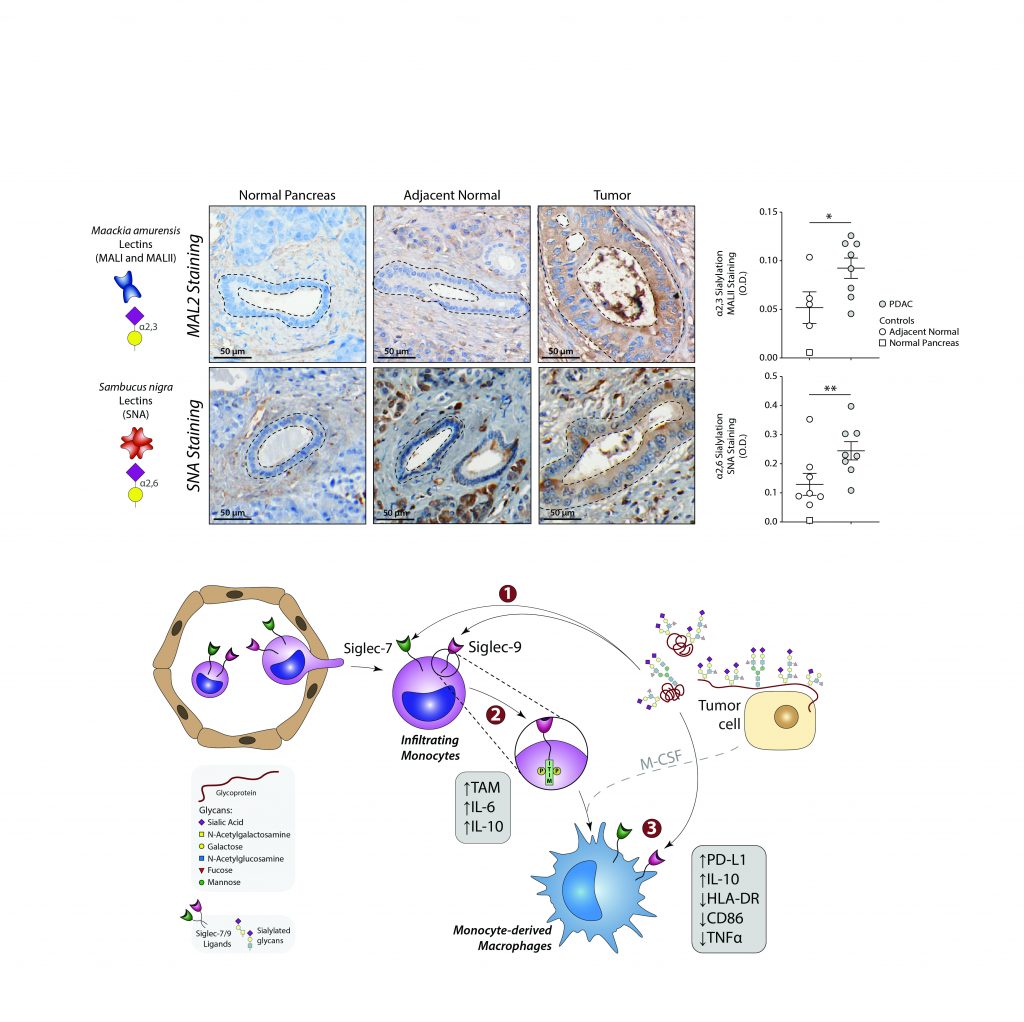
Pancreatic ductal adenocarcinoma (PDAC) remains one of the most severe cancer types with a
5-year survival of 9% . The PDAC TME is characterized by dense fibrotic stroma
and suppressive immune cells that repress anti-tumor immune responses and
contribute to cancer progression. In this paper, Rodriguez et al showed that
pancreatic tumor cells present an increased expression of a particular glycan
structure, sialic acid, capable to shape immune responses by inducing
tolerogenic programs in myeloid cells. This work highlights a critical role for
sialylated glycans in controlling immune suppression and provides new potential
targets for cancer immunotherapy in PDAC.

